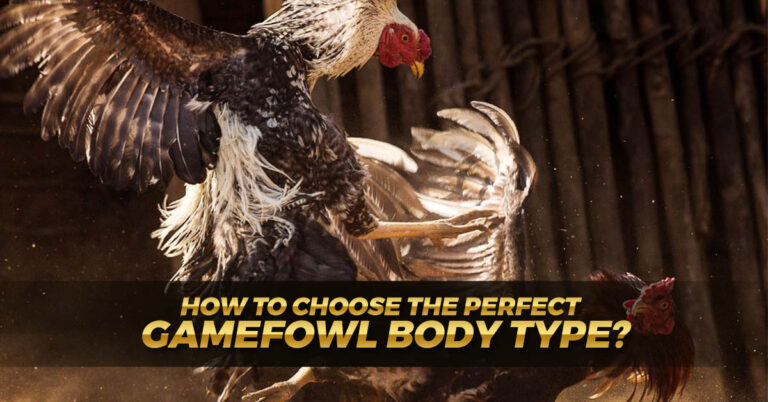Gamefowl Free-range after Brooding
First of all, if you’re new to running a gamefowl free-range farm, you should understand that after gamefowl brooding isn’t like raising regular chickens. Gamefowls require the correct kind of environment and care to develop into strong competitors in battles. Continue with this article, Sabong International is providing you with the best farming for your gamefowl in range.

Possible Causes of Growth Stunted in Gamefowl Free-Range
The major issue in creating a breed is not delayed growth
per se, but rather the effects this has on how well the gamefowl turn food into muscle (feed efficiency) and the increased resource needs for raising gamefowl. This is not only a financial issue; it also has significant effects on sustainability and the environmental impact of the gamefowl industry as a whole. All animals need a specific amount of energy per day to sustain their health, but slower-growing gamefowl will need more overall energy.
Water issues
Water shortages might lead to unneeded tension. Stress can also be brought on by water of poor quality. Give them a constant supply of pure, fresh water, and clean their watering apparatus frequently to lessen stress. See our post on the value of water to hens for additional details.
Inadequate Dietary Intake
Feeds for gamefowls are created for certain uses and age ranges. Inadequate nutrition, a lack of feed, or allowing feed decay can all result from feeding the incorrect kind of feed. For instance, young gamefowls should not be fed a lower protein diet meant for mature gamefowls, such as layer ration, but rather a gamefowl starter that provides necessary levels of protein.
Rough or excessive handling
They experience some stress when handled, especially when handled roughly. Stress can be greatly increased by kids who haven’t been adequately taught how to handle gamefowls. On the other hand, caring for your gamefowls properly can lessen stress in general. If you handle your hens infrequently, they will not be accustomed to human contact, which will cause them undue stress when you do handle them (for example, to check for mites).
The answer is to handle them gently, often enough for them to get used to it, but in moderation. Simply spending a few minutes each day in the coop or pen with them can help. A hen or rooster will learn that you aren’t going to hurt it if you pick it up, hold it for a bit, and then gently set it down. Regular handling will help them become calmer and less stressed when you do need to handle them (some breeds more so than others).
Overcrowding
Too many chickens crammed into a tiny area causes stress, exacerbates pecking behaviors, makes maintaining basic hygiene more challenging, and can raise the danger of parasites and disease. Make sure your chickens have enough room to roam.

Illness and Parasites
illnesses, internal parasites like worms, and external parasites like mites weaken chickens’ immune systems and make them more vulnerable to illness.
Temperature Extremes
along with extreme cold. What feels cold to us may not necessarily be cold to chickens because they are often much better insulated than we are.
Growth Stunted Prevent in Gamefowl Free-Range
Gamefowls Require a Private Area
For a good range area for your gamefowls, you need a space of at least 600 square meters. For each chicken to get the activity he needs to become a competitive gamefowl, he should have at least 20 square meters alone to himself.
Chickens won’t have the freedom they require in a small coop to hone their natural reflexes, stamina, and other attributes. Because they have greater room to wander, chickens are happier and healthier animals overall.
Gamefowl’s Nutritional Needs Must Be Met
Game birds have specialized nutrition for a reason. It’s because these foods aid in their growth to the size you want them to reach. To ensure that your game birds can benefit from both natural and artificial food sources, mix the two.
In addition to food, game birds require access to water. This is done to ensure that they stay hydrated all day. This also enables you to keep their living space tidy.
Gamefowls require The Appropriate Ground Cover
Your gamefowl must have access to grass in addition to the proper diet so they can grow up strong and healthy. They have a secondary source of food as a result. They will also be able to obtain the necessary protein thanks to the nearby insects.
As a result, you should give your game birds some latitude over their eating habits. They can learn to peck at live creatures by being let to hunt insects. When they compete, this will be helpful.
Gamefowl Need to be Able to Access Trees.
Your game birds need access to trees, therefore that would be excellent. Because of this, they have a cool place to hide from the sun. It can also be a place for them to play or just wander around at the same time.

Additionally, since they shield chickens from the wind when it rains, trees are helpful. Game fowls have to flap their wings to climb trees, which is also advantageous.
Gamefowls Require A Range Area that is Kept Up
This calls for maintaining clean, chicken-poop-free dwelling spaces for them. They could mistakenly think that feces is food, which could make them ill. Because of this, you must keep an eye on their neighborhood to make sure it’s kept up.
This implies that the game birds’ dwelling quarters can only be accessed by authorized staff. This is done to make sure they’re safe and, of course, that no one gets hurt.
Because raising game birds requires an investment, those who practice free-range farming should buy high-quality supplies to provide the hens with the greatest care. Building long-lasting range areas can help them reach their full potential, and Philippine Ranging Nets is your partner in this effort.
Conclusion
The range, which includes reflexes, endurance, strength, instincts, experiences, etc., is undoubtedly necessary for a young gamefowl to develop appropriately. As a result, if gamefowl were kept in quarters that were too small, such development would not occur. Additionally, brood fowls must be roamed anytime the farm is not raising them for breeding. They will become healthy thanks to the range. Local brood fowl will also replace any nutrients lost during early breeding efforts if provided a suitable range.










